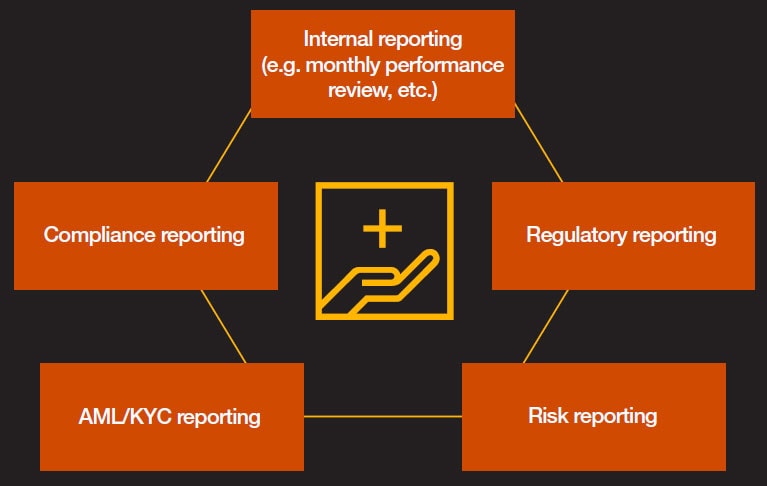{{item.title}}
{{item.text}}

{{item.text}}

Knowing that the data you hold is fit for purpose and well-managed is key - this allows you to determine how to analyse data and to be confident in the decisions you make.
Digital transformation dramatically accelerated over the past months as a response to the pandemic. In such circumstances, ensuring that your data migration to new IT infrastructure and systems is properly managed is key to successfully transform your organisation.
Today, to run your business efficiently, you need an effective control over its operational mechanisms.
Understanding the real flow of your business processes is paramount when you want to improve process effectiveness, minimise time waste, reduce cost as well as ensure compliance and overall quality improvement or detect anomalies or fraud.
You want to increase efficiency and productivity while managing your risks.
For this, it is crucial to analyse and optimise processes and to assess their compliance with your internal policies. Indeed, there are often gaps between how business processes should work and how they work in reality, because of complexity, changes that occur over time and deviations for operational reasons.
The traditional way to analyse and fix processes is through interviews, workshops, observations and document analysis. This approach is timeconsuming and is complicated by the fact that people often only see part of processes and miss the complete picture.
"Process Intelligence" is a data-enabled approach where we quickly structure, federate and analyse multiple computer datasets generated by end -users in their daily activities. The aim is to model all steps of a process (business, IT or financial) in order to create a true visual representation. Our focus is on analysing the efficiency and conformity of a targeted end to end process.
We extract activity-related data to identify a full process map. Our tools then bring the process to life, comparing it to expected flows and producing a custommade dashboard to support the analysis.
Inefficiencies within the real-world process can be easily identified based on a visualisation process map. This can then help in standardisation across an organisation and to drive costs down, providing 100% clarity into process activities.
We reveal how existing processes differ from the ideal/expected way of working, as well as highlighting the impact of these changes on wider operations.
By successfully drilling down into the time required to complete individual elements of processes, our tools can help to identify hold-ups and bottlenecks in the flow of data and support future improvement.
Establish trust with your stakeholders through transparent and relevant reporting driven by Data.
Today's marketplace is crowded, and customers - whether businesses or individuals - are more discerning than ever. For organisations to succeed, they need to be trusted. Customers and stakeholders are looking for information that is relevant, reliable and provides them with assurance.
Building trust among customers and stakeholders is more than just good business practice. It's an important source of competitive advantage that sustains long-term growth.
Given the regulatory focus by the CSSF and other regulators as well as the ease of detecting and proving errors, transaction reporting has been and will be a focus for regulatory fines.
Common themes include poor eligibility logic, change management, inadequate understanding of data sources (e.g. timestamp conversions) and business models and incorrect counterparty, product, and venue reference data logic.
Management information has become more critical to corporate decision-makers – 70% of the executives in a recent PwC survey said their companies’ senior managers are paying more or significantly more attention to management information than two years ago. However, management information isn’t robust enough to support the level of in-depth analysis that their companies’ decision-makers are requesting.
And in terms of using data to drive key strategic decisions, poor data quality is the main barrier to executives integrating more data and analytics into their decision making.
As the need to extract meaning and insight from data becomes ever greater, how can businesses remove the quality barriers which are impeding their ability to use their data effectively?
From our experience, tackling data quality is as much about changing behavior as it is about providing technical fixes. Data errors and omissions typically start when the data is first captured - so identifying and working with the business creators of the data to lock in improvements to the capture process is crucial to addressing the underlying root cause.
Key questions to ask when embarking on a data quality improvement program are:
Our services are oriented to provide assurance on your data for the following functions together with our Compliance specialists teams:
{{item.text}}

{{item.text}}
Julien Melotte
Audit Partner, Industry & Public Sector, Sustainability, PwC Luxembourg
Tel: +352 49 48 48 5287


